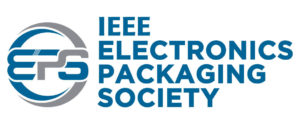Speaker: Michael C. Hamilton, ECE Department, Auburn University
Meeting Date: Thursday, April 22, 2021
 Slides: April 22, 2021 On-demand video:
Slides: April 22, 2021 On-demand video:  (1:00:00 plus Q&A)
(1:00:00 plus Q&A)
Summary: Over the past several years, we have been developing an array of packaging and integration technologies for cryogenic, superconducting and quantum systems. These technologies include thin-film, flexible superconducting microwave transmission line cables and cable-to-cable connector technologies that can enable densely integrated cryogenic electronics systems. Rigid or hand-formable co-axial cables, that are used in present systems, are bulky and often limit the integration of a large density of input/output signals into cryogenic environments, due to system constraints including volume and thermal load. Suitable connector technologies are an urgent need for these systems, as well. In this talk, I will describe our research and development efforts to realize high performance, multi-conductor superconducting flexible cables and connectors made using thin-film processing techniques. I’ll also discuss our efforts and the associated challenges with characterizing superconducting cables with extremely low insertion loss at multiple 10’s of GHz. The flexible superconducting cables that we are developing show great promise as interconnect structures for future superconducting and cryogenic electronics systems, including superconducting quantum computing applications.
 Bio: Dr. Michael C. Hamilton obtained his B.S.E.E. from Auburn University in 2000 and M.S.E.E. and Ph.D. from The University of Michigan in 2003 and 2005, respectively. From 2006 to 2010, he was at MIT-Lincoln Laboratory (Lexington, MA), where he worked on a range of microwave and solid-state device and system-level projects. Dr. Hamilton joined the Electrical and Computer Engineering Department of Auburn University as an Assistant Professor in 2010, was promoted to Associate Professor in 2015, then to Professor in 2019 and is now James B. Davis Professor. In 2016, he became the Director of the Alabama Micro/Nano Science and Technology Center (AMNSTC), which is a micro/nano technology center at Auburn University funded by the State of AL. He is the Auburn University IEEE Student Chapter Faculty Advisor. Dr. Hamilton is involved with IEEE MTT-S: Education Committee, Chair of MTT-7 Technical Committee on Microwave Superconductivity and Cryogenics, producer/moderator of the IEEE MTT-S Webinar Series. He is currently serving on the editorial board of a new open access journal: IEEE Journal of Microwaves. His current interests and areas of research include superconductive electronics and technologies for quantum systems, micro/nano fabrication, packaging and integration of high-speed systems, signal and power integrity of densely integrated systems, application of micro and nanostructures for enhanced performance of RF and microwave systems and packaging for extreme environments (both high and low temperature).
Bio: Dr. Michael C. Hamilton obtained his B.S.E.E. from Auburn University in 2000 and M.S.E.E. and Ph.D. from The University of Michigan in 2003 and 2005, respectively. From 2006 to 2010, he was at MIT-Lincoln Laboratory (Lexington, MA), where he worked on a range of microwave and solid-state device and system-level projects. Dr. Hamilton joined the Electrical and Computer Engineering Department of Auburn University as an Assistant Professor in 2010, was promoted to Associate Professor in 2015, then to Professor in 2019 and is now James B. Davis Professor. In 2016, he became the Director of the Alabama Micro/Nano Science and Technology Center (AMNSTC), which is a micro/nano technology center at Auburn University funded by the State of AL. He is the Auburn University IEEE Student Chapter Faculty Advisor. Dr. Hamilton is involved with IEEE MTT-S: Education Committee, Chair of MTT-7 Technical Committee on Microwave Superconductivity and Cryogenics, producer/moderator of the IEEE MTT-S Webinar Series. He is currently serving on the editorial board of a new open access journal: IEEE Journal of Microwaves. His current interests and areas of research include superconductive electronics and technologies for quantum systems, micro/nano fabrication, packaging and integration of high-speed systems, signal and power integrity of densely integrated systems, application of micro and nanostructures for enhanced performance of RF and microwave systems and packaging for extreme environments (both high and low temperature).
